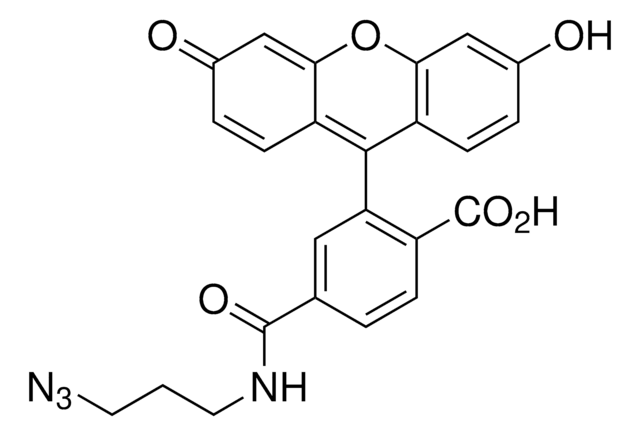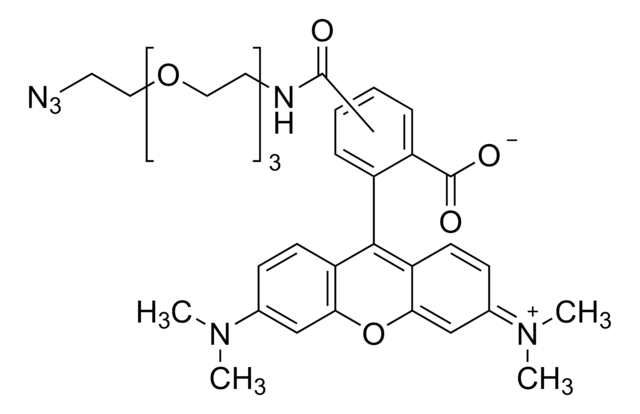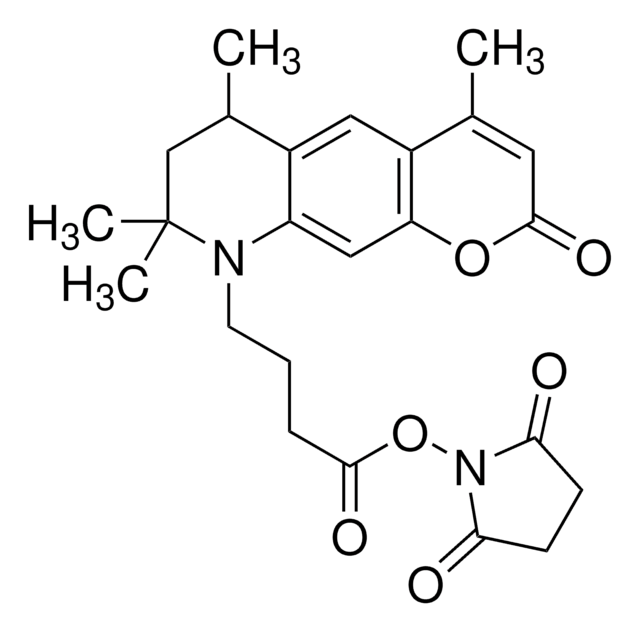68321
Atto 390 azide
BioReagent, suitable for fluorescence, ≥90% (HPLC)
About This Item
Recommended Products
product line
BioReagent
Quality Level
Assay
≥90% (HPLC)
form
solid
manufacturer/tradename
ATTO-TEC GmbH
λ
in ethanol (with 0.1% trifluoroacetic acid)
UV absorption
λ: 380-384 nm Amax
suitability
suitable for fluorescence
storage temp.
−20°C
SMILES string
CC(CC(C)(C)N1CCCC(NCCOCCOCCOCCN=[N+]=[N-])=O)C2=C1C=C(OC(C=C3C)=O)C3=C2
InChI
1S/C28H41N5O6/c1-20-16-27(35)39-25-18-24-22(17-23(20)25)21(2)19-28(3,4)33(24)9-5-6-26(34)30-7-10-36-12-14-38-15-13-37-11-8-31-32-29/h16-18,21H,5-15,19H2,1-4H3,(H,30,34)
InChI key
FEBSRHTZZIMYNR-UHFFFAOYSA-N
General description
The azide modification is suitable for reactions with alkyne groups (Huisgen reaction - “Click Chemistry“).
find more information here
Legal Information
Not finding the right product?
Try our Product Selector Tool.
Storage Class Code
11 - Combustible Solids
WGK
WGK 3
Flash Point(F)
Not applicable
Flash Point(C)
Not applicable
Choose from one of the most recent versions:
Already Own This Product?
Find documentation for the products that you have recently purchased in the Document Library.
Our team of scientists has experience in all areas of research including Life Science, Material Science, Chemical Synthesis, Chromatography, Analytical and many others.
Contact Technical Service






